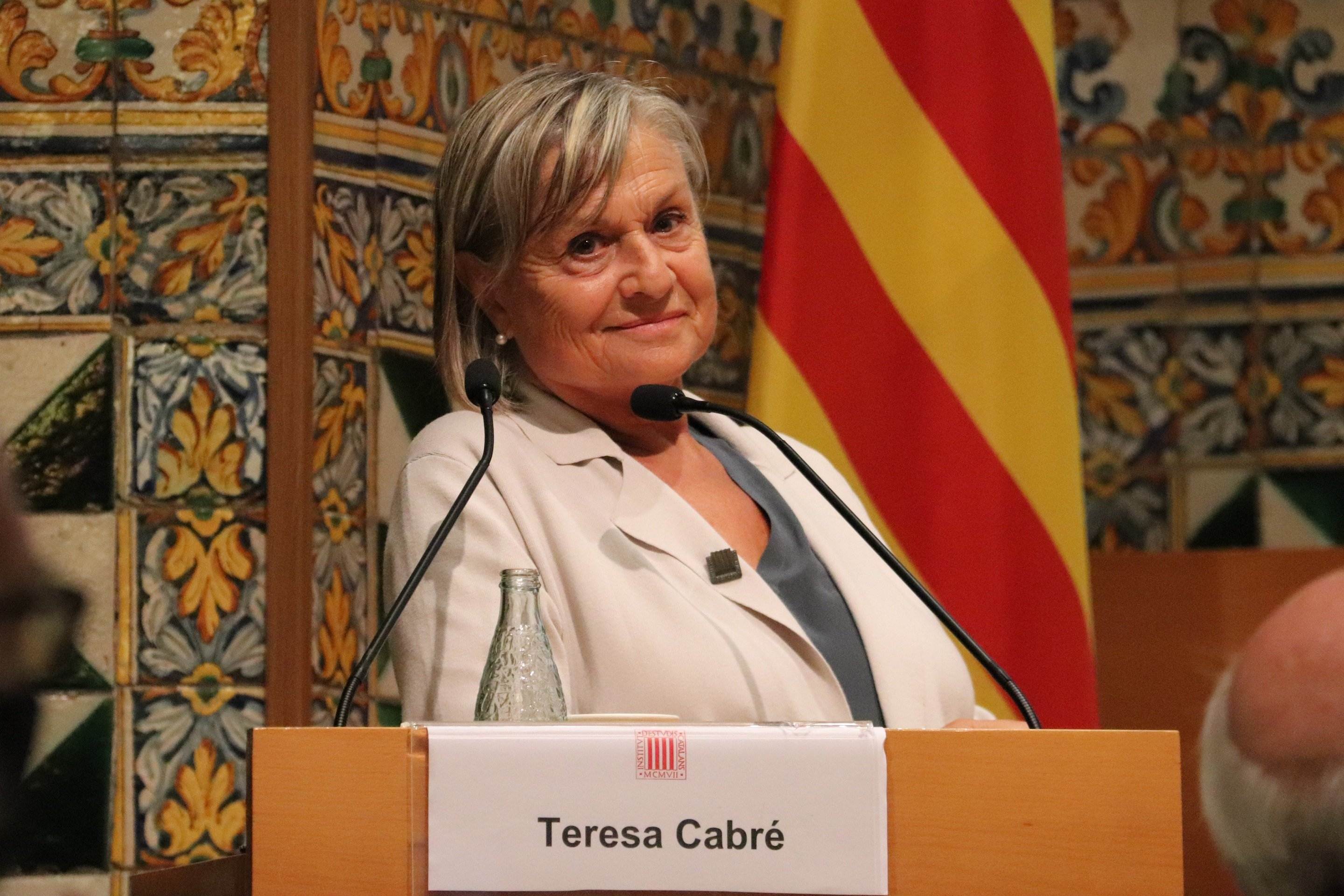The president of the Institute of Catalan Studies (IEC), Teresa Cabré, has given a positive assessment of the decision to allow the use of Catalan, Basque and Galician in Spain's Congress of Deputies. The first commitment made by the new speaker of the Spanish lower house, Francina Armengol, has been to allow the use in parliament of these languages of the state, in addition to Castilian (that is, "Spanish"). Cabré described the decision as "historic" and appealed for it not to "be lost in any way". "The various denominations and political sensitivities must not be an obstacle for it to become a reality," she told the ACN agency.
Danger of reopening old wounds
Cabré spoke about the 'Catalan-Valencian' nomenclature, which the former Valencian president, Ximo Puig, referred to this Monday. In this regard, she asserted that the use of this label could reopen old wounds due to "tendential and interested" readings. Specifically, this formula could serve as a precedent to fragment the language by making it appear that there are two different languages. "The language is one, with its various varieties," she recalled.
The IEC head defended "political solutions" that allow obstacles to be avoided. Thus, she affirmed that "I would rather go ahead with a political denomination, not a philological one or a scientific one, if at the same time the unity of the language is ensured, whatever its nominative nature". However, she warned of the consequences it could have if used with bad intent. "If the politicians who have taken it forward are clear about it, nothing happens, but they must be very clear, especially in the PSOE."
A difference in naming is only called for in Valencia
Cabré also pointed out that a different naming for the overall language is only claimed by the Valencian autonomous community, while in the Balearic Islands, Northern Catalonia (in French territory), the Franja (in Aragón) and L'Alguer (Sardinia), people always speak of "Catalan language" and she is more in favour of using the formula "the Catalan language, called Valencian in the Valencian Autonomous Community". "The academic, philological and scientific conception, recognized even in the Royal Spanish Academy's dictionary, is that the language is one, the Catalan language".
Nevertheless, Teresa Cabré explained that they sent the Institute's thanks to the new speaker of Congress by letter. So, she has opened the door to any "conversation, advice or solution" that could "be an alternative to 'Catalan-Valencian', as long as it makes it clear when one is talking about, on the one hand, the language, and on the other, "its varieties".

